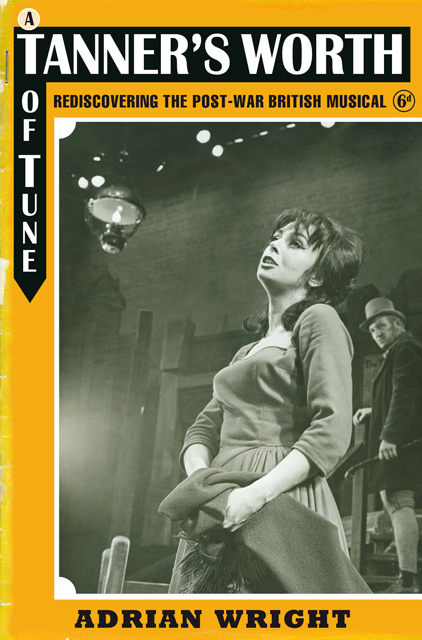Book contents
- Frontmatter
- Dedication
- Contents
- List of Illustrations
- Acknowledgements
- 1 Before and After: Identifying the British Musical
- 2 Delusions of Grandeur: Ivor Novello
- 3 Mastering Operetta: Noel Coward
- 4 Pastiche and Esoteric: Sandy Wilson
- 5 Resounding Tinkles: The plein air Musicals of Julian Slade and Dorothy Reynolds, Geoffrey Wright and Donald Swann
- 6 Away from Home: Adopted British Musicals
- 7 Community Singing: Realism and the British Verismo Musical
- 8 Specifically British: David Heneker, Monty Norman, Julian More and Wolf Mankowitz
- 9 To Whom it May Concern: The British Biomusical
- 10 Fin de Partie: John Osborne, Lionel Bart and After
- Appendix 1 Original Productions of British Musicals
- Appendix 2 Adaptations from Other Works, 1946–78
- Select Bibliography
- Index of Musical Works
- General Index
5 - Resounding Tinkles: The plein air Musicals of Julian Slade and Dorothy Reynolds, Geoffrey Wright and Donald Swann
Published online by Cambridge University Press: 01 March 2023
- Frontmatter
- Dedication
- Contents
- List of Illustrations
- Acknowledgements
- 1 Before and After: Identifying the British Musical
- 2 Delusions of Grandeur: Ivor Novello
- 3 Mastering Operetta: Noel Coward
- 4 Pastiche and Esoteric: Sandy Wilson
- 5 Resounding Tinkles: The plein air Musicals of Julian Slade and Dorothy Reynolds, Geoffrey Wright and Donald Swann
- 6 Away from Home: Adopted British Musicals
- 7 Community Singing: Realism and the British Verismo Musical
- 8 Specifically British: David Heneker, Monty Norman, Julian More and Wolf Mankowitz
- 9 To Whom it May Concern: The British Biomusical
- 10 Fin de Partie: John Osborne, Lionel Bart and After
- Appendix 1 Original Productions of British Musicals
- Appendix 2 Adaptations from Other Works, 1946–78
- Select Bibliography
- Index of Musical Works
- General Index
Summary
Vinegar, along with soap, bacon, clothes, meat, candles, petrol, and a wearying list of other necessaries, was in short supply from the outbreak of war in 1939. Only in 1948 did the British government begin to lift the restrictions. The clothing ration was stopped in March 1949. Petrol rationing ended in 1950, not in time to prevent Novello being sent to prison for breaking its rules. Food rationing, which had then lasted for an astonishing fourteen years, came to an end on 4 July 1954, the very month that Salad Days came to life. A general sense of celebration was not too distant, needed not least because of the nuclear shadow that haunted 1950s Britain. Britain, after all, still had living memories of the great 1951 Festival of Britain, and the coronation of its young Queen in June 1953. With a new youthful face on its postage stamps, the only way was ahead. Julian Slade and Dorothy Reynolds were about to beckon the way to a new Elizabethan age.
Salad Days
Central to the immediate potency of Salad Days (Vaudeville Theatre, 5 August 1954; 2,288) Slade and Reynolds promulgated a philosophy of dancing in the streets, an expression of what the writer Barbara Ehrenreich has named ‘collective joy’ . Coronations, jubilees and street parties provide the occasional excuses for it in Britain, and all over the world festivals of dancing in the streets abound. Celebration may, of course, emanate from the misfortune of others: the joy in the streets of Iraq that greeted the toppling of their dictator’s statue, and the execution of Saddam Hussein in December 2006. The most popular form of collective happiness, the most obvious expression of emotional release: pick a person up and dance with them. On this bedrock of elemental happy behaviour was Slade and Reynolds’ best known, if not best, work to be built.
Between matinees of Salad Days at the Vaudeville Theatre, when its composer was playing in the pit at each performance, he and the Vaudeville’s owner Jack Gatti sat chatting at the back of the stalls.
- Type
- Chapter
- Information
- A Tanner's Worth of TuneRediscovering the Post-War British Musical, pp. 95 - 122Publisher: Boydell & BrewerPrint publication year: 2010

